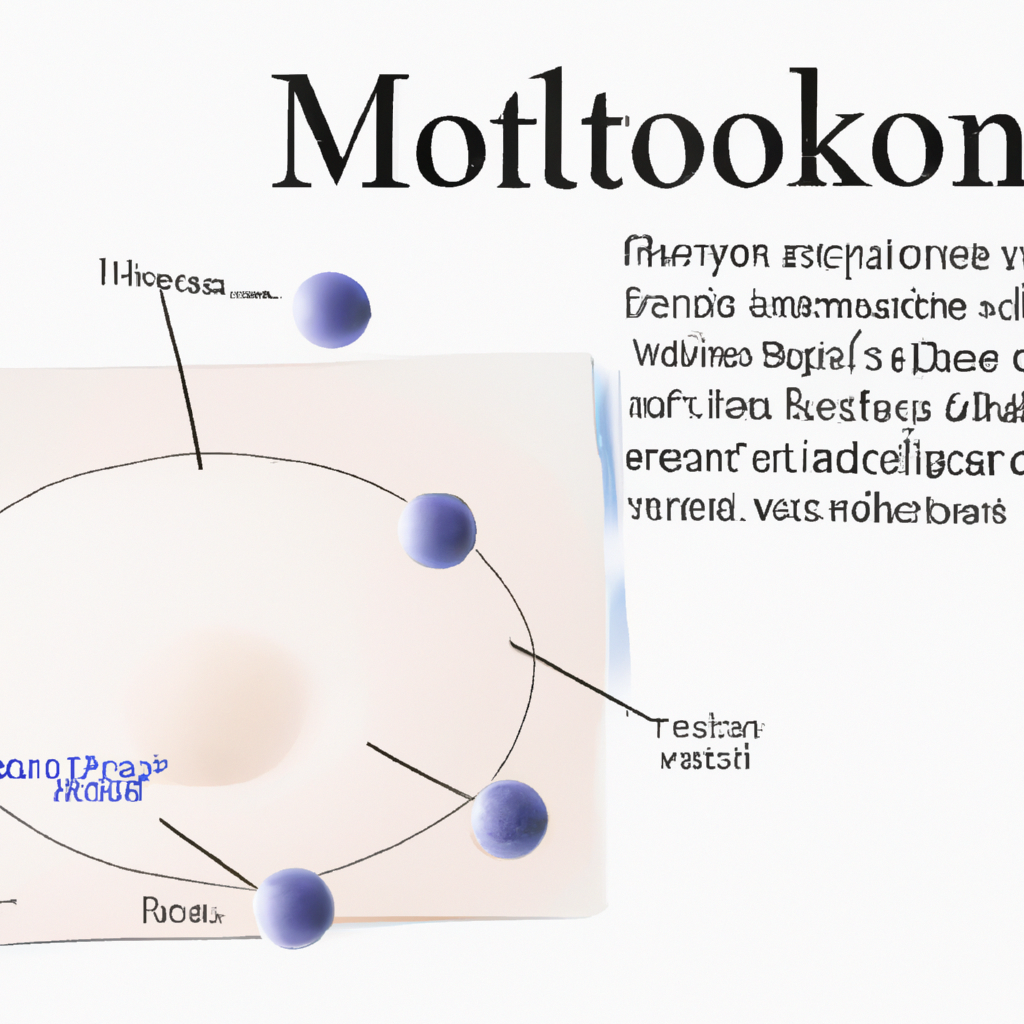We often talk about the all-important task of sleeping – but, have you ever thought about the importance of the role melatonin plays in the process? Melatonin is a hormone naturally produced in the body, and it is the key to helping us get the sleep we need. So let’s dive into this fascinating topic and explore the role of melatonin in our sleep and wellbeing.
1. Unlocking the Secrets of Sleep: The Wonders of Melatonin
Have you ever felt tired despite having a seemingly normal amount of sleep? Have you ever been hesitant to take certain drugs to help you sleep? If so, melatonin may be your answer.
Melatonin is a hormone that is naturally released during nighttime by the pineal gland in our brain, which is what helps us feel tired. It is also available in supplement form. From regulating our sleep cycles to helping with jet lag, melatonin has a lot of potential benefits.
Possible ADHD Benefits: Some research suggests that melatonin supplementation may potentially help those with attention-deficit hyperactivity disorder. It is believed to increase focus and alertness in those with ADHD.
- Helps regulate our sleep-wake cycle, or circadian rhythm.
- Can improve alertness and reduce fatigue.
- May help with occasional jet lag.
- May have potential benefits for those with ADHD.
Though the research is very limited, melatonin does appear to be a potential remedy for those who need help getting to sleep. If you’re curious to see how melatonin might help and are willing to give it a try, talk to your doctor about what might be the best option for you.
2. Unveiling the Benefit of the Sleep Hormone
Melatonin – sometimes referred to as the ‘sleep hormone’ – is a natural hormone produced by the brain at night to help regulate the body’s sleep-wake cycle. Often associated with improved sleep quality and quantity, it has been linked to a range of other potential health benefits too.
Heart Health: Melatonin may play a role in lowering the risk of cardiovascular disease. Studies have found that there may be a link between low melatonin levels and high blood pressure. Having the right balance of this hormone in the body could help to reduce cardiovascular risks.
Immune System Support: Melatonin plays a role in the body’s defence system by protecting against oxidative stress. It can also increase natural killer cells, helping to improve the defences against infections and other issues.
Mood Booster: Melatonin has been found to improve mood and energy levels. This makes it an ideal option for those who suffer from depression or other mood-related symptoms. In addition to this, it may help to increase concentration and cognitive abilities.
Melatonin can also help with sleep issues and general wellbeing. In addition to this, it can be beneficial for those who work varying shifts or a lot of nights. It is important to note that it is not recommended as a replacement for traditional medications or therapies, and should be taken as part of a holistic approach to health.
- Improves mood and energy levels
- Could help reduce cardiovascular risks
- Supports the body’s defence system
- Ideal option for those suffering from depression
- Can help to increase concentration and cognitive abilities
3. Growing Evidence of the Role of Melatonin in Maintaining Health
It’s no surprise that melatonin plays an integral role in regulating sleeping patterns, but recent research suggests that melatonin may exert significantly greater effects on overall health than previously thought.
For starters, melatonin may provide substantial help in combating type 2 diabetes. The hormone is believed to inhibit the activity of mRNA involved in initiating and maintaining type 2 diabetes. When taken as a supplement, melatonin may also help reduce blood glucose levels and indicate beneficial effects on obesity-related markers.
Melatonin may also prove helpful in lowering cancer risk. Studies suggest that melatonin may serve as an effective preventative measure against cancer, as the hormone’s antioxidant properties can scavenge for carcinogens, as well as suppress inflammation and signal cell death in tumor cells.
Furthermore, studies have shown that increasing melatonin levels can effectively reduce stress levels and reduce the risk of developing mental health disorders such as depression and anxiety. Melatonin stands out among other similar supplements due to its ability to perform both immediate and long-term relief of stress among its users.
Finally, melatonin can also help target hypertension. As stress and sleep disturbances both derive from a lack of melatonin, taking the hormone as a supplement can help to reduce inflammation that contributes to high blood pressure. Evidence is increasing that melatonin is a critical factor for maintaining an overall sense of wellbeing.
4. Exploring the Relationship between Melatonin and Sleep Quality
There is a big conversation about sleep health happening around the world, and one of the most discussed topics is the relationship between melatonin and sleep quality. Melatonin is a hormone produced by the pineal gland and responsible for regulating the sleep-wake cycle of the body. A natural compound available in supplement form, it is believed that it has a significant effect on the quality of our sleep. Here’s a look at the facts.
How Does Melatonin Help Promote Sleep?
First off, melatonin helps induce sleep by helping the body distinguish between day and night. This first step in helping us drift off to sleep is known as circadian rhythm, and melatonin plays a big part here.
Melatonin also signals the body to prepare for sleep by slowing down processes such as body temperature and heart rate. When the body is ready to sleep, melatonin plays a key role by shifting the body into a state of relaxation that is conducive to a deep and restorative sleep.
What Are the Benefits of Melatonin?
- It helps the body relax and prepares it for sleep.
- It may be beneficial for people dealing with sleep disorders such as insomnia.
- It helps people struggling with jet lag readjust their circadian rhythm.
- It may help alleviate some of the symptoms associated with depression.
To understand how melatonin affects sleep quality, we must first look at how our sleep patterns are affected by the environment. When the body is exposed to light, it suppresses melatonin production. On the contrary, when light is not present, the body produces more melatonin, which in turn makes us feel more tired and able to fall asleep faster.
Our bodies are incredibly complex machines, and understanding how the different parts work together can help us lead healthier lives. With a better understanding of melatonin and its role in sleep, you’ll better understand how to regulate your sleep pattern and be ready for whatever comes your way. Sweet dreams!



